How First World War heroes inspire the Queen and Britain to reflect this Remembrance weekend – Andrew Vine
Lieutenant Osmond Bartle Wordsworth, 29, fell during the fighting around Arras, on the Western Front, on April 7, 1917, as he went forward to help his men. They laid him to rest nearby, but amid the chaos of war his grave was lost.
It took until 2013 for it to be rediscovered, when a French farmer unearthed the remains and scraps of military insignia from the uniform, which were exhumed and reburied with full military honours in a Commonwealth War Graves Commission cemetery near Arras.
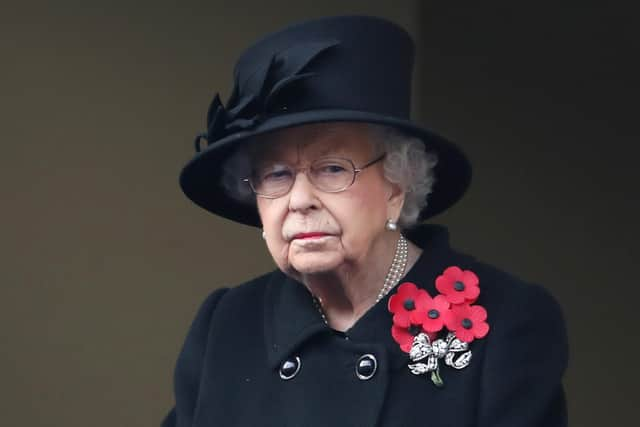

Advertisement
Hide AdAdvertisement
Hide AdBut the identity of the soldier was unknown and so his headstone, like thousands of others, bore no name.
Until now.
Six years of research by two retired army officers, Lieutenant-Colonel Ingram Murray and Major Tom Shannon, which took them to America, Canada, Australia and Ireland to scour military records, established the strong possibility that the unknown soldier was Lt Wordsworth.
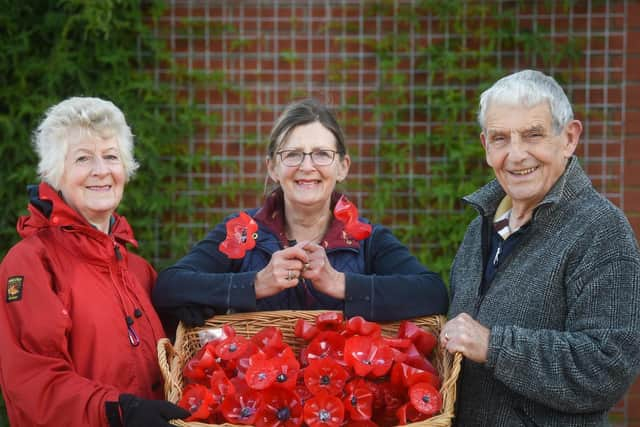

A DNA sample from the remains, tested against one from a living relative, confirmed it was him.
Advertisement
Hide AdAdvertisement
Hide AdHis relatives will soon have a place of pilgrimage to pay their respects, when a new headstone bearing the name of Lt Wordsworth – a great-nephew of poet William Wordsworth – is placed on his grave.
It is truly inspiring that volunteers like Lt-Col Murray and Major Shannon are still putting so much time and effort into identifying the fallen who rest in anonymity.
All over the country, there are people doing the same, combing official records and the accounts of those who were there, not only from the Great War, but from the Second World War as well.
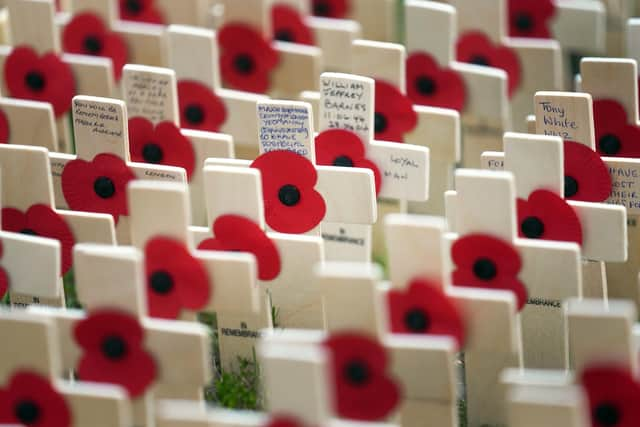

Each year, their painstaking efforts result in a few more names being inscribed not only on headstones, but on war memorials in home towns and in family histories which have, often for more than a century, had a missing chapter about the fate of a son, a brother or a husband.
Advertisement
Hide AdAdvertisement
Hide AdIn the military cemeteries of France and Belgium, I’ve seen how much it means to families able to make their own pilgrimages to the grave of a relative.
Often, there are several generations in the family groups, and even though they have no direct memory of their relative, it is a profoundly moving experience.
The written tributes left, along with flowers, on the grave are without exception deeply heartfelt.
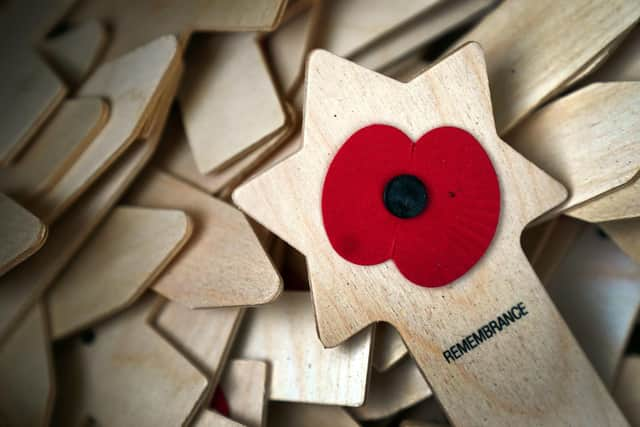

The honouring of Lt Wordsworth resonates especially this year, since it is the centenary of the Royal British Legion’s poppy appeal.
Advertisement
Hide AdAdvertisement
Hide AdThe fate of those who had fallen on the battlefields of Europe – and the plight of many who came home unable to work as a result of their wounds – was very much on the minds of British people in 1921.
They responded magnificently to that first appeal, buying nine million poppies and raising £106,000 – the equivalent of more than £5m now – to help veterans.
It is something of which our country should be very proud that we respond with equal enthusiasm and generosity today.
And the appeal remains as important as it was a century ago. Remembrance is not only about the two great global conflicts of the 20th century, but of all the deployments of the men and women of Britain’s armed forces.
Advertisement
Hide AdAdvertisement
Hide AdIt belongs to the here and now – only months ago, we witnessed the anguish of veterans who had lost comrades in Afghanistan at seeing the country abandoned to cruelty by the hasty and ill-thought-out withdrawal of US forces.
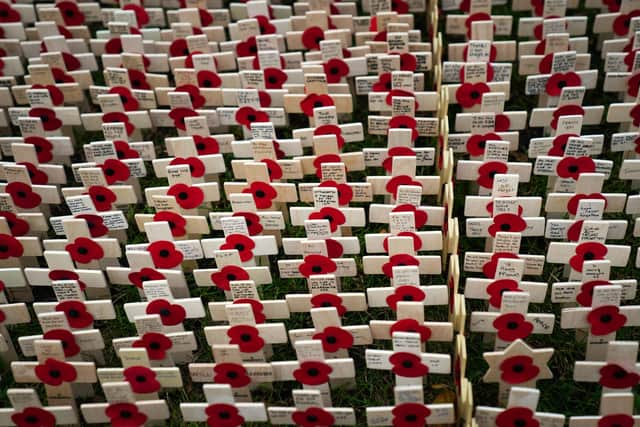

There are those amongst them, in what should be the prime of their lives, struggling with the physical and mental scars of trying to bring peace to a country that has suffered so much.
What the poppies represent, and the money they raise, are as much for them as for any of the revered centenarians who will be honoured guests at remembrance services tomorrow, or the memory of Lt Wordsworth and the ranks of those who rest alongside him in France and Belgium.
Understanding of that has grown in recent years.
Generations too young to have relatives who fought in the Second World War have family and friends who served in Iraq or Afghanistan, and that has brought home the debt of gratitude we all owe our armed services.
Advertisement
Hide AdAdvertisement
Hide AdOne sure sign of that respect and affection is the welcome shown to the poppy sellers who are back out in force this year after the pandemic restricted them in 2020.
Their absence last autumn felt like something precious was missing from our national life.
It has been wonderful to see them. The seller from whom I bought a poppy was a veteran of the Falklands War – the 40th anniversary of which is next year.
As we talked, he told me how many people had said they were glad to see him and his colleagues once again.
Advertisement
Hide AdAdvertisement
Hide AdHow central remembrance is to us as a nation will be underlined tomorrow, when the Queen is due to attend the service at the Cenotaph, her first in-person appearance for weeks after being advised to rest by doctors.
Her presence is a mark of how important a date Remembrance Sunday is in our national calendar – and the place it holds in the nation’s hearts.
In this centenary year of the poppy appeal, we can look forward to the next 100 years and be confident that all who have given their lives or health for their country will never be forgotten.
Read Andrew Vine in The Yorkshire Post every Tuesday.
Support The Yorkshire Post and become a subscriber today. Your subscription will help us to continue to bring quality news to the people of Yorkshire. In return, you’ll see fewer ads on site, get free access to our app, receive exclusive members-only offers and access to all premium content and columns. Click here to subscribe.
Comment Guidelines
National World encourages reader discussion on our stories. User feedback, insights and back-and-forth exchanges add a rich layer of context to reporting. Please review our Community Guidelines before commenting.